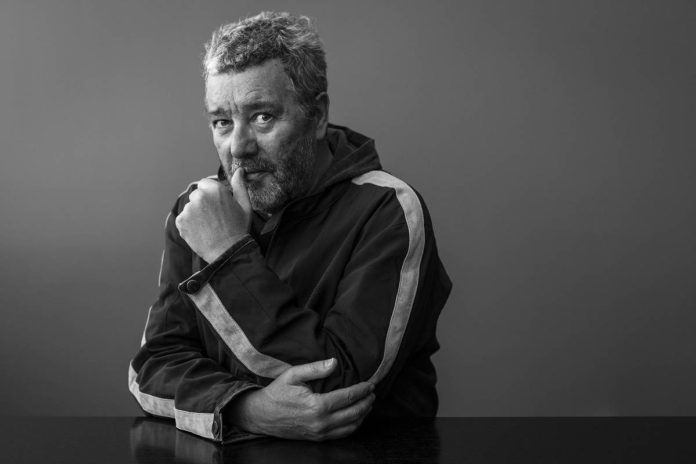One could say that your work is not ‘only’ design, but also continuous invention aimed at changing the paradigms that influence our life?
Yes, my work has almost no relation to design, except for the last stage of the process. Unfortunately. the result is only design, but the process that proceeds it has no relation to design. At birth, we sign a contract with the community – we must deserve to exist and we must therefore serve the community. I have many ideas and I am slightly autistic, which leads me to a mental illness called creativity. And I am not talking about quality, but production level. I try to use this ability as honestly as I can and with the best vision in order to create things that can help my tribe to live a better life. This is why I live an isolated life, far away from everything, so that I have a clearer vision from which I can extract a clean ethic, from which I create concepts.
So the basis of the invention process is a ‘mental illness’ called creativity?
Exactly, you need curiosity for everything and fear of not being good enough, then you can live like a modern-day monk, alone with yourself. Avoid listening, reading and repeating. Stay in bed and dream until your stored ideas are ‘cooked to perfection’, get out of bed as quickly as possible, draw a sketch with a pencil and paper, which are still the tools that best express creativity, send it to someone who can develop it, produce it and distribute it honestly, transforming it into a product, not for your own benefit, but for the benefit of the people who will use it.
What are the most pressing issues in terms of improving quality of life?
It is not a question of improving quality of life but of saving lives. The civilization that we have created in the western world has suddenly imploded: we have discovered that we have to fight for ecology to save essential resources such as water, that some governments have become dictatorships that start wars for profit, that our civilized values are disappearing. The real emergency is to combat all of this with urgency and determination. Everyone has their own weapons – a designer can focus his production on promoting the right values of civilization.
Alongside your ethical approach, do you also work with emotions?
Everything must relate to emotions, which are the main tool. If you do not create emotions, people will not have any contact with what you have designed and will not be able to live in the spaces that you have created. Emotions are the vehicle for everything. We are therefore very lucky to work with the best perfume-makers, with new molecules, to create a line of perfumes [Starck Paris, Ed.], the fastest connection between emotions and the brain. It is pure immateriality – a drop is enough to open a universe and to give you an idea of the person wearing them.
Does designing also mean telling stories?
It depends on the subject. In the case of medical equipment, you are not telling a story, it is simply a case of what is best for us, whereas with perfumes you create a universe, which leads to stories. With regard to furniture, the Lou collection for Driade, for example, is a story, but the Generic collection for Kartell is an x-ray of what exists around us.
What does experimenting mean to you and when, or where, do you experiment the most?
Experimenting is everything; not experimenting is a danger to evolution. Every copy or repetition is a loss for civilization. Taking risks is a duty – it is the only expression of courage in modern society. Experimenting and exploring are the only keys for our progress.
Can we consider the design of spaces a layering process?
Yes, a process of concentric layering. You begin with the love that you have for the people that you love and how you give them the very best. From the quality of the pillow, sheets and mattress, from the view from the bed, from the quality of the sun on this bed on a Sunday morning and from the harmony of the space in which you live. From the way in which the people that you love can share the space and find their own place in it together.







